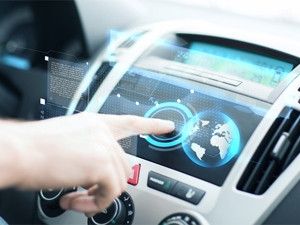
A new study, by Juniper Research, finds the adoption of connected in-vehicle infotainment systems will produce revenues exceeding $600 million in 2020, representing a 10-fold increase on this year.
The research paper, Consumer Connected Cars: Telematics, Insurance & In-Vehicle Applications 2015-2020, notes consumer adoption of connected car entertainment will grow rapidly as Apple CarPlay and Android Auto gather traction.
As these systems become firmly established, Juniper expects a wave of new applications to become available, specifically designed for in-vehicle use such as advanced traffic solutions, route optimisation, and in-vehicle gaming.
Research firm, Transparency Market Research, says global in-car entertainment and information system market was valued at $11.42 billion in 2014, growing at a compound annual growth rate of 14.2% from 2015 to 2021 to account for $28.46 billion in 2021.
It points out the technological advancements and innovation in the infotainment market is set to surge in the coming years, thereby driving the demand for entertainment and information systems in automobiles.
The growing demand for advanced infotainment components in automobiles is driving the in-car entertainment and information system market currently, it says.
Navigation technology, telematics, audio-video solutions, WiFi and Bluetooth services, among other entertainment and infotainment solutions, are largely being demanded by the consumers, it adds.
Juniper believes on-board systems with integrated wireless functionality will eventually push ahead of systems requiring the presence of a smartphone.
Also, original equipment manufacturers will seize the opportunity of greater independence, better integration with other in-vehicle systems by including directly integrated units such as Apple CarPlay, Android Auto and BlackBerry's QNX, it says.
Furthermore, the research also argued that over-the-top players such as Apple, Amazon and Google would play an ever more central role in the development of the connected car space as end users demand more technology in their vehicles.
It pinpointed Apple and Google's activities in the autonomous driving systems space as key developments in this regard.
Tech blogger Liron Segev, says in-car entertainment, navigation and control is a hotly contested playing ground - with all the big players looking to dominate this market.
However, Segev doesn't see consumers selecting or rejecting a vehicle based on its infotainment system as yet. "Yes, it's a consideration but not one that will make or break a vehicle selection."
Currently, vehicles are evolving from being just a mode of transportation into mobile computing centres which include connectivity to the Internet and connectivity with other vehicles, says Segev.
There is a definite move to self-driving cars being driven by the aim to have complete road safety, he adds.
"At present we see the stepping stone of driver-assisted cars with systems that automatically park themselves. This will continue to accelerate as more vehicle manufacturers get on board."
Share